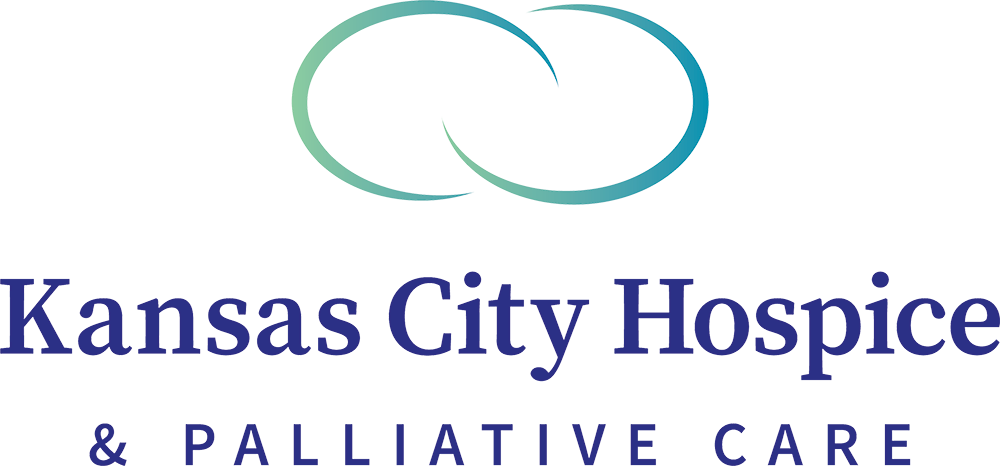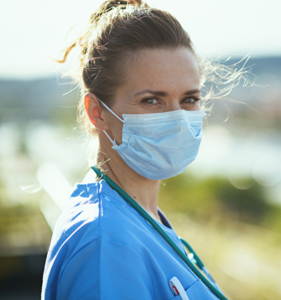 By Pamela Harris, MD, FAAPMR, FAAHPM, Director of Medical Programs at Kansas City Hospice
By Pamela Harris, MD, FAAPMR, FAAHPM, Director of Medical Programs at Kansas City Hospice
You can find ways of connecting despite COVID-19. I imagine most people who are not in the medical field are getting really tired of being told what they can’t do. Even those of us who are trained to wear masks and protective equipment are finding the pandemic very challenging. Our goal is to keep you and your family safe, so we at Kansas City Hospice are all using the utmost precautions.
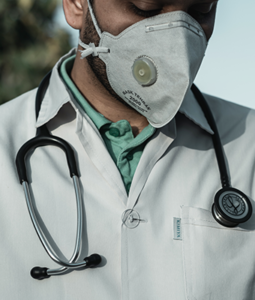 If it seems like you’re constantly being told what NOT to do and you find that not only frustrating, but counter-productive, you’re not alone. Excessive rules just make us want to rebel and we get into all-or-nothing thinking. Some people think “I’m going to completely hunker down and take zero risks.” Others think “I’m willing to risk getting infected because it’s just too much to deal with.”
If it seems like you’re constantly being told what NOT to do and you find that not only frustrating, but counter-productive, you’re not alone. Excessive rules just make us want to rebel and we get into all-or-nothing thinking. Some people think “I’m going to completely hunker down and take zero risks.” Others think “I’m willing to risk getting infected because it’s just too much to deal with.”
There is a middle path that makes sense for most people. But, if you are a medical professional or have been told you at a higher risk of infection, then follow the guidelines you’ve been given.
Here’s a three-step guide to risk minimization for the general public. It’s based on a New York Times survey of 700 epidemiologists.
One behavior you should try to eliminate, without exception
Spending time in a confined space (outside your household) where anyone is unmasked is not advisable. This includes:
- Eating indoors at a restaurant or friend’s house.
- Close, unmasked conversations anywhere, even outdoors.
- If you must fly, try not to eat or drink on the plane.
- If you’re going to work, avoid lunch in the same room as colleagues. Group lunch breaks have led to COVID-19 outbreaks at hospitals and businesses.
Minimize these behaviors if you can’t avoid them
Masks aren’t perfect. Learn how to reduce your risk.
- Avoid spending extended time in indoor spaces, even with universal masking.
- Do your job or attend religious services remotely when possible.
- Work out at home rather than at a gym.
Some activities are less risky than people fear
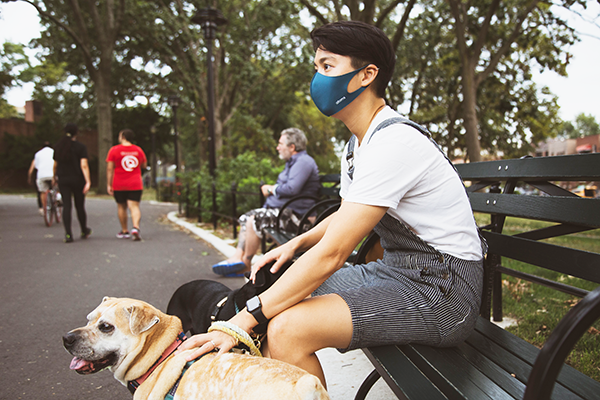 Just wear a mask as needed, stay distant from others, and wash your hands afterward.
Just wear a mask as needed, stay distant from others, and wash your hands afterward.
- You don’t need to wear a mask to walk or jog.
- You can also feel okay about doing many errands, like shopping for groceries, going to the pharmacy and visiting other stores.
Budget your risk
Instead of all-or-nothing thinking, try working on a risk budget.
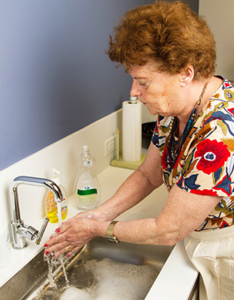 Home delivery – use grocery/pharmacy/meal delivery, online shopping and other services to avoid crowds. Pick and choose the places you need to visit in person.
Home delivery – use grocery/pharmacy/meal delivery, online shopping and other services to avoid crowds. Pick and choose the places you need to visit in person.
Avoid peak times – when you do need to go out in public, avoid the busiest times.
Find ways to connect – a socially distanced walk with a friend, porch visit, neighborly chat from the driveway, or a drive-by just to share a smile. These can help you feel less isolated.
Set limits that work for you – we all have that friend or relative who thinks the risks are overblown. Keep the relationship, but keep your distance. Connect on the phone instead of meeting at a restaurant. Insist on patio seating if you do decide to go out to eat. Wear your mask, use hand sanitizer and wash your hands when you are around people being less cautious.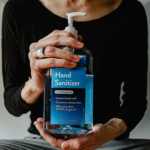
Be the change
Set an example for those around you by taking the pandemic seriously. But you don’t need to be the neighborhood COVID cop.
Lead by example – show others that taking precautions is pretty easy if you just use common sense.
Try not to lash out – studies show that nagging, complaining and other negative reinforcements seldom work. Plus, they can add to your stress and isolation.
Be patient – vaccines may be on the way, but it will take quite some time to lower the risks for everyone.
Stay the course – when signs say things are getting better, don’t immediately do back to “normal.” You need to think about precautions that make sense based on risks today. Have hope, but use common sense.
The dangers of COVID-19 are real, but the risk is really up to you.
For people interested in the Kansas City Hospice COVID-19 Vaccination Clinic:
No initial dose vaccination clinics are scheduled at this time.
The state of Missouri has communicated that they are currently unable to allocate doses to us for an initial dose vaccination clinic. The federal and state response continues to evolve and future allocations to smaller vaccination sites like Kansas City Hospice are uncertain.
We urge you to not wait to sign up for a vaccination from another site in your state. The following links provide other locations for vaccinations:
- Missouri: https://covidvaccine.mo.gov/map/
- Kansas: https://www.kansasvaccine.gov/
If you contacted us before February 1, you will remain on our waiting list and we will keep you posted if future vaccination clinics with us become available. We will also post updates on this page.
For those of you vaccinated on 1/21, 1/22, and 1/25, your appointment for your second dose is still scheduled and an appointment reminder will be sent to you directly.
We appreciate everyone’s patience and understanding.
About Us
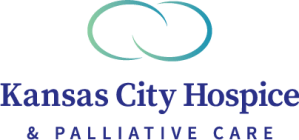
Posted in General, News & Events, Voices of Care
